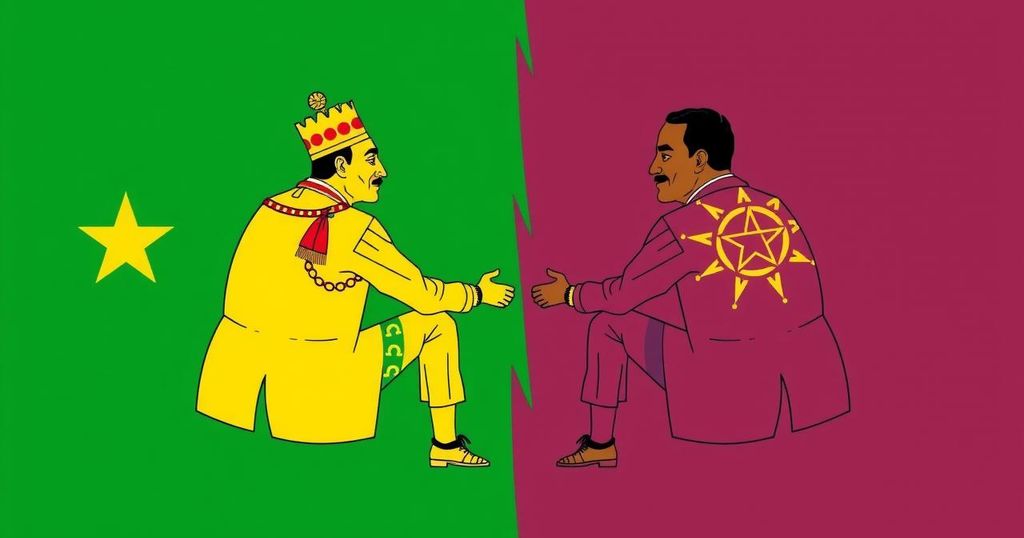Turkey is engaged in diplomatic mediation between Somalia and Ethiopia, following a controversial MoU between Somaliland and Ethiopia that has strained relations. The Ankara process seeks to alleviate tensions and promote stability in the Horn of Africa, though considerable challenges remain due to entrenched positions regarding national security and sovereignty. With Turkey’s historical diplomatic ties, there is potential for resolution; however, the regional dynamics pose significant obstacles.
Turkey’s diplomatic engagement between Somalia and Ethiopia represents a strategic shuttle diplomacy aimed at alleviating tensions following a recently signed Memorandum of Understanding (MoU) between Somaliland and Ethiopia. Turkey’s longstanding relations with both nations position it as a credible mediator in resolving disputes that threaten regional stability. Turkey has played a significant role in Somalia’s state-building endeavors and has actively supported Ethiopia’s military efforts against the Tigray People’s Liberation Front (TPLF) in Ethiopia’s recent internal conflicts. The Ankara process aims to mitigate tensions and foster stability in the Horn of Africa amid a changing geopolitical landscape influenced by various regional interests. During a recent round of talks, Turkish Foreign Minister Hakan Fidan stated, “As Turkey, our goal is to address the existing concerns and resolve the issues in a way that will benefit not only Somalia and Ethiopia but the entire region.” However, the road to resolving the disputes between Somalia and Ethiopia is fraught with challenges, primarily due to entrenched positions held by both sides regarding crucial national security issues. The Horn of Africa has been historically volatile, making the Ankara process vital for stability. The geopolitical ambitions of Ethiopia, particularly under Prime Minister Abiy Ahmed, have increased regional tensions, especially following the controversial MoU with Somaliland. Critics have observed that while Abiy was initially viewed favorably, the realities of Ethiopia’s complex ethnic and political dynamics reveal a darker picture marked by repression and military conflicts. The core of the discord lies within the MoU signed between Hargeisa (the capital of Somaliland) and Addis Ababa, which many argue undermines Somalia’s sovereignty. Ethiopia’s perceived ambitions for maritime access and a naval base exacerbate these tensions and pose existential threats to Somalia’s political cohesion. Turkey’s mediation approach must carefully balance the competing interests of the two nations, while acknowledging that any military confrontation would have dire implications for both parties and potentially involve neighboring countries like Eritrea and Egypt. Furthermore, the guiding principles of international law will significantly influence the mediation process, particularly regarding Ethiopia’s aspirations for a military presence in the Gulf of Aden, which Somalia is unlikely to accept. Ultimately, Turkey seeks a resolution to the Somalia-Ethiopia disputes despite considerable geopolitical and legal challenges. However, achieving a lasting solution will demand careful diplomacy and a recognition of the complex historical and political realities at play in the Horn of Africa.
The diplomatic tensions between Somalia and Ethiopia have escalated following a Memorandum of Understanding signed in January 2024 between Ethiopia and Somaliland, a secessionist entity. Turkey’s ongoing mediation efforts stem from its history of relationships with both countries and its prior investments in Somalia’s state-building and military capabilities. As the region faces increasing complexity, Turkey endeavors to navigate these disputes with the aim of promoting stability amid competing ambitions and historical grievances.
Turkey’s role in mediating the Somalia-Ethiopia disputes highlights both the potential for diplomatic resolution and the profound challenges that characterize the Horn of Africa. The existence of entrenched positions from both nations, combined with Ethiopia’s expansionist ambitions and the subsequent threats to Somalia’s sovereignty, complicate the resolution process. While both parties risk the destabilization of the region through military conflict, Turkey remains committed to using diplomatic channels to foster peace. Failure to address these disputes could lead to broader regional implications, making Turkey’s mediation efforts all the more critical.
Original Source: www.dailysabah.com






